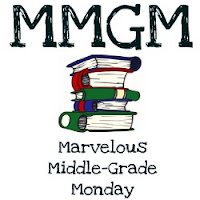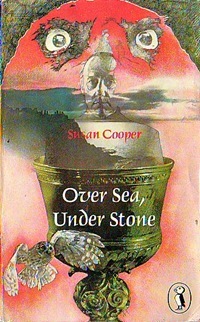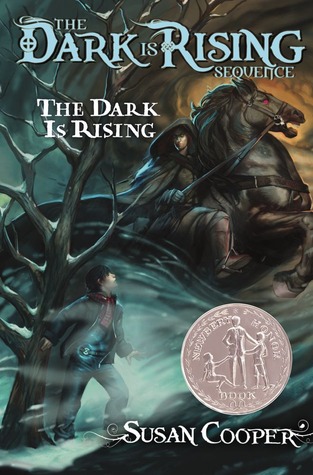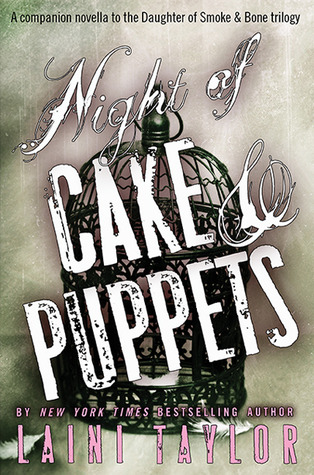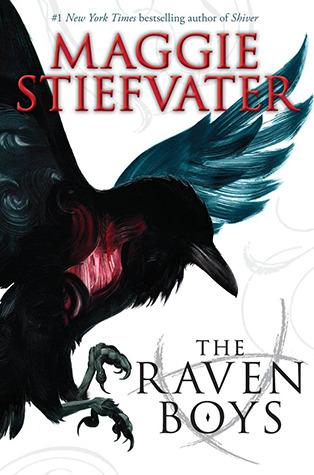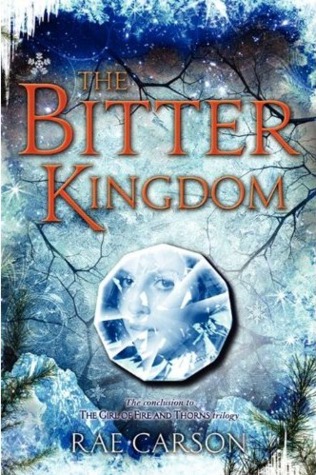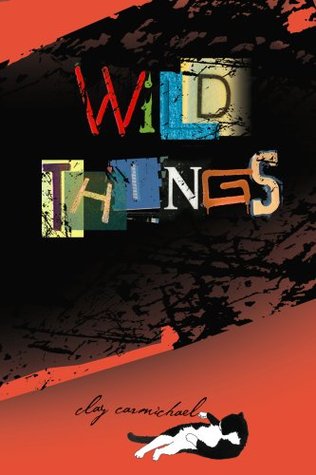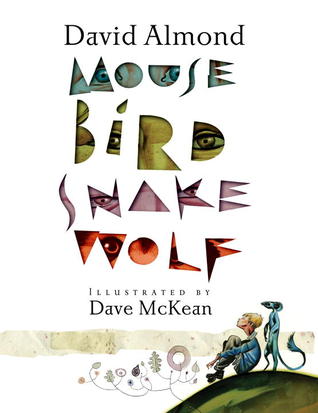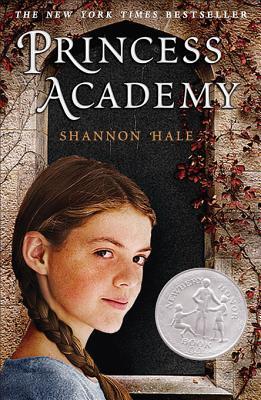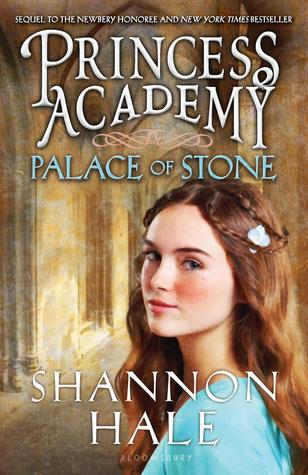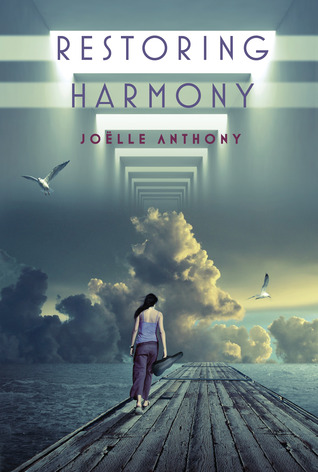I do occasionally read non-fiction. I picked up this book on a random library browse (it was on the librarians' recommendation shelf), started reading it that afternoon, and immediately wanted to write down all the wonderful quotations I wanted to remember. I could use random scraps of paper that I would later lose, or a word doc that would get forgotten in my Documents folder, or I could put them all in a blog post that would be easy to find, and also make it easy to share.
So I'll break with my blog mandate (I can do that; it's my blog!) and use this post to share direct quotations from Rabbi Jonathan Sacks. It's a really long post; if you're interested enough to get to the end you will have made it through the entire book with me! From now on all words are Rabbi Sacks'; bold is my highlighting.
Science analyses, religion integrates. Science breaks things down to their component parts. Religion binds people together in relationships of trust.
Science describes. Religion beckons, summons, calls. Science sees objects. Religion speaks to us as subjects. Science practises detachment. Religion is the art of attachment, self to self, soul to soul. (p. 6)
Love, trust, family, community, giving as integral to living, study as a scared task, argument as a sacred duty, forgiveness, atonement, gratitude, prayer: these things work whether you believe in them or not. (p. 15)
Freud said that religious faith was the comforting illusion that there is a father figure. A religious believer might say that atheism is the comforting illusion that there is no father figure. ... Why should one be considered escapist and not the other? Why should God's call to responsibility be considered an easy option? (p. 17)
[For "wisdom" read "science" and for "Torah" read "religion"]: Wisdom tells us how the world is. Torah tells us how the world ought to be. Wisdom is about nature. Torah is about will. It is about human freedom and choice and the way we are called on to behave. Wisdom is about the world God makes. Torah is about the world God calls on us to make, honouring others as bearers of God's image, exercising our freedom in such a way as not to rob others of theirs. (p. 70-71)
Religious knowledge as understood by the Hebrew bible is not to be construed on the model of philosophy and science, both left-brain activities. God is to be found in relationship, and in the meanings we construct when, out of our experience of the presence of God in our lives, we create bonds of loyalty and mutual responsibility known as covenants. People have sought in the religious life the kind of certainty that belongs to philosophy and science. But it is not to be found. Between God and man there is moral loyalty, not scientific certainty. (p. 73)
Science takes things apart to see how they work. Religion puts things together to see what they mean. They speak different languages and use different powers of the brain. ... Once we recognize their difference we can move on, no longer thinking of science and religion as friends who became enemies, but as our unique, bicameral, twin perspective on the difference between things and people, objects and subjects, enabling us to create within a world of blind forces a home for a humanity that is neither blind nor deaf to the beauty of the other as the living trace of the living God. (p. 77)
Faith is about seeing the miraculous in the everyday, not about waiting every day for the miraculous. (p. 81)
Politicians value us for how we vote, economists for how we earn, advertisers for how we buy, people in the arts and entertainment for how we spend our leisure. Outside religion there is no secure alternative base for
the unconditional source of worth that [comes] from the idea that we are each in God's image. (p. 102)
Human goodness is widely distributed, and I have no respect for religious people who cannot see this. (p. 104)
Science cannot, in and of itself, give an account of human dignity, because dignity is based on human freedom. ...
Freedom is a concept that lies outside the scope of science. Science cannot locate freedom, because its world is one of causal relationships. A stone is not free to fall or not to fall. ... A scientific law is one that links one physical phenomenon to another without the intervention of will and choice. To the extent that there is a science of human behaviour, to that extent there is an implicit denial of the freedom of human behaviour. ... But if freedom is an illusion, then so is the human dignity based on that freedom. (p. 124)
The supreme irony of contemporary secular ethics is that humans are treated as possessors of rights because they have autonomy, the ability to choose, while at the same time evolutionary psychology and neuroscience are undermining the very idea that we freely choose anything at all. The contradiction at the heart of this secularised view of humanity cannot be sustained for ever. (p.126)
If we lose freedom in theory, eventually we will lose it in practice, as happened in Nazi Germany and Stalinist Russia. (p. 127)
There are three ways of
getting individuals to act in a way that is beneficial to the group. One is power: we force them to. The second is wealth: we pay them to. The disadvantage of both is that they leave selfishness untouched. They use external incentives. ... The third alternative is to educate them to see that the welfare of others matters as much as their own.
No system has done this more effectively than religion, for an obvious reason. Religion teaches us that we are part of the whole, a thread in the fabric of God's creation, a note in the symphony of life.
Faith is the ability to see ourselves as joined to others by God's love.
Not only does it teach us this, through story and ritual, celebration and prayer, it weaves it into our personalities, affecting all parts of the almost infinitely complex labyrinth of the human brain. No wonder then that religion has survived, and that we need it if we are to survive. (p.156)
Social cohesion is precisely what religion sustains and much else undermines. When societies grow affluent, when the burden of law-abidingness falls on the state and its institutions, when people define right and wrong in terms of externalities--punishments and rewards--and in terms of what other people do and are seen to get away with, when people focus, as they naturally do, on immediate benefits not long-term sustainability, then society begins to erode from within and there is little anyone can do to halt it. (p. 161)
The faith of Abraham makes two monumental claims: first, that the relationship between God and humanity is a matter of love, not power: second,
that you can build a society on the basis of love, love of neighbour and stranger, that leads us to care for their welfare as if it were our own. These remain, even now, astonishing ideas, and one would say that they were wildly utopian were it not for the fact that the faith of Abraham has lasted longer than any other known civilization. (p.164)
What made marriage unique was the way it brought together in a single institution a whole series of essential human activities: sex, reproduction, companionship, love, responsibility for the welfare and nurture of those we have brought into being, and responsibility for their education. ... When marriage breaks down, ... human bonds splinter and fragment into a myriad component parts, so that we can have sex without reproduction and reproduction without sex. We can have both without love, love without companionship, and children without responsibility for their nurture. (p. 167)
What are in danger of being lost are the linked qualities of loyalty, fidelity, duty, trust and the sharing of a pledge by which both partners promised not to walk away, the very things that make love a glimpse of eternity in the midst of time, and parenthood the closest any of us can come to God: love bringing new life into the world. What is lost when faith is lost is
marriage as the supreme moral commitment that lifts humanity from biology to poetry. (p. 168)
Faith is about relationship sustained without the use of power. If any relationship, whether between husband and wife, parent and child, siblings, neighbours, strangers and friends, is dependent on power, faith has broken down. God does not live in such relationships. (p. 169)
Emunah, the biblical word for faith, really means 'covenant loyalty.' It means being true to the bond you have made with another, honouring your word and trusting them to honour theirs. God makes promises to us. We make promises to God. At the deepest level of metaphor and meaning, faith is a marriage, a bond entered into in love and honoured in life.
Faith lives, breathes and has its being in the world of relationships, in the respect we pay our marriage partner, the steadfastness with which we bring up our children, and the way we extend the feeling of family to embrace neighbours and strangers in acts of hospitality and kindness. (p.172)
The meaning of life is the realisation that you are held in the arms of a vast presence; that
you are not abandoned; that
you are here because you were meant to be. It is the sense that life is something you have been given, so that you live with a feeling of gratitude and you seek to give back, to 'pay it forward,' to be a blessing to others. This presence in which you live knows you better than you know yourself, so it is no use pretending to be what you are not, or denying your shortcomings, or justifying your mistakes, or engaging in self-pity, or blaming others. It is a loving, forgiving but challenging presence, demanding much but never more than you can do. It asks you to give your best, not for the sake of reward, but because that is what you are here on Earth to do.
This is not a testable proposition. There is no scientific experiment that would establish it to be true or false. (p 188)
Religion is a sustained process of using the deep power of joy to see into the life of things. (p. 199)
Simchah is something we cannot experience alone.
Simchah is joy shared. (p. 204)
Science is not religion; religion is not science. Each has its own logic, its own way of asking questions and searching for the answers. The way of testing a scientific hypothesis is to do science, not read Scripture.
The way of testing religion is to do religion. (p. 214)
Belief in God is an assertion of human dignity in the face of humiliation, and of hope in the midst of the dark night of despair. It is a refusal to accept evil as inevitable, but at the same time an acknowledgement that we cannot leave redemption entirely to God. ... God is not the solution of a contradiction, but a call to become his partners in the work of redemption. (p. 247)
The most significant determinants of happiness are strong and rewarding personal relationships, a sense of belonging to a community, being valued by others and living a meaningful life. These
are precisely the things in which religion specializes. (p. 280)
At their best, science and religion are both instances of the human passion to decode mysteries, constantly travelling in search of a destination that continues to elude us, that is always over the furthermost horizon. It is that willingness to search, ask, question, that makes us what we are. ...
When all the scientific explanations are in, the great questions still remain. (p. 285)
Monotheism expects great things from us, and by doing so makes us great. It calls us the image of God, the children of God, God's covenantal partners. It challenges us to become co-builders with God of a gracious society and a more just world. It tells us that each of us is unique, irreplaceable, precious in God's sight. (p. 287)
In an age of fear, moderation is hard to find and harder to sustain.
Who wants to listen to a nuanced argument, when what we want is someone to relieve us from the burden of thought and convince us that we were right all along? So people mock. They blame they caricature. They demonise. In an age of anxiety, few can hear the still small voice that the Bible tells us is the voice of God. (p. 295)
 I've now finished the five books of Susan Cooper's The Dark is Rising sequence (for the umpteenth time, I might add), and I can confidently recommend them to anyone with an interest in High Magic and the ancient battle between Light and Dark. If you like C. S. Lewis, Tolkien, Philip Pullman, Madeleine L'Engle, Ursula K. LeGuin--Susan Cooper stands right up there with them, weaving bits of Welsh and Arthurian myth with her own version of the eternal struggle, all planted firmly in real landscapes of the British Isles. (My last post has more descriptions of the five books of the series.)
I've now finished the five books of Susan Cooper's The Dark is Rising sequence (for the umpteenth time, I might add), and I can confidently recommend them to anyone with an interest in High Magic and the ancient battle between Light and Dark. If you like C. S. Lewis, Tolkien, Philip Pullman, Madeleine L'Engle, Ursula K. LeGuin--Susan Cooper stands right up there with them, weaving bits of Welsh and Arthurian myth with her own version of the eternal struggle, all planted firmly in real landscapes of the British Isles. (My last post has more descriptions of the five books of the series.) If you're enamoured of all things Welsh, you can round out your reading experience with another classic kids' fantasy series: Lloyd Alexander's Chronicles of Prydain. Based on the tales of the Mabinogion, the five short novels tell the story of Taran, Assistant Pig-Keeper, and his motley group of friends who must fight against Arawn, Lord of Death. I adored these books when I was a kid. Taran is one of the most accessible epic heroes: he tries so hard and falls flat on his face so often! (I think I found him a true kindred spirit.) I haven't reread these in a while; think they might be my next readathon.
If you're enamoured of all things Welsh, you can round out your reading experience with another classic kids' fantasy series: Lloyd Alexander's Chronicles of Prydain. Based on the tales of the Mabinogion, the five short novels tell the story of Taran, Assistant Pig-Keeper, and his motley group of friends who must fight against Arawn, Lord of Death. I adored these books when I was a kid. Taran is one of the most accessible epic heroes: he tries so hard and falls flat on his face so often! (I think I found him a true kindred spirit.) I haven't reread these in a while; think they might be my next readathon.

